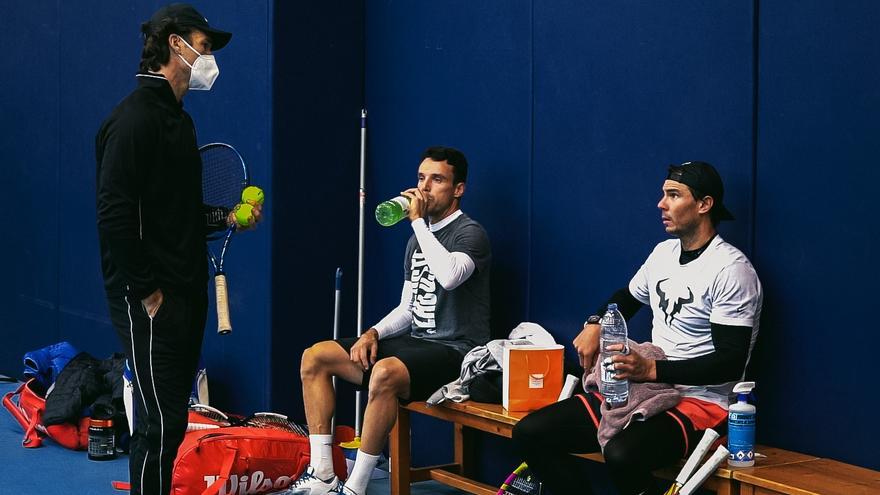This is rare good news: the Legault government is giving up on extending distance education to primary and secondary schools.
Posted on January 7, 2021 at 6:00 a.m.
–
–
Classes will start again in class on Monday January 18 in secondary school, and next Monday in primary school (with the mask for students of 5e and 6e year).

PHOTO ALAIN ROBERGE, PRESS ARCHIVES
“I have no doubt that the Quebec crisis unit is working tirelessly with the best of intentions. But I think it is overwhelmed and that the school remains in its blind spot, ”writes our columnist.
–
Classes will reopen, therefore. But some could still close if outbreaks occur.
Are we doing everything possible to prevent them? I have the impression not. There are too many constructive suggestions that have been dismissed, too many expert opinions that have been ignored.
I have no doubt that the Quebec City Crisis Staff is working tirelessly with the best of intentions. But I think she is overwhelmed and that the school remains in its blind spot.
Last March, all attention was turned to hospitals, and CHSLDs were forgotten. This has been corrected. Efforts are now concentrated on these two types of establishments as well as on the vaccination campaign. This is normal and desirable. But there is a limit to the number of files that can be carried out in parallel.
To resolve the crisis in the CHSLDs, an expert committee was urgently created. It led to the dispatch of specialized brigades – SWATs. This could serve as a model for schools.
The idea came from Marwah Rizqy, liberal education critic. She suggests that the crisis unit welcome someone with expertise in preventing outbreaks at school. A person who does not come from the government machine, who has field knowledge of schools and who can bridge the gap between scientific data and practical constraints to find daring solutions.
Whatever formula is chosen, the idea remains the same: stir the cage.
On Friday, the Minister of Education, Jean-François Roberge, will present his plan for the return to school. I don’t know what it will contain. But I see that in recent months many suggestions have been ignored or are slow to be implemented.
It is not just the issue of ventilation, which is the subject of some scientific debate and deserves a column on its own.
Last summer, the National Institute of Public Health of Quebec, like the WHO, proposed that class sizes be reduced by half. There is a lack of premises and teachers, replied Prime Minister Legault with reason. Except that the PQ critic, Véronique Hivon, found a solution: the alternating half-class. The teacher would always stay in class and film himself. On Monday, half of the class would attend in person, and the other half would follow from a distance. The roles would be reversed the next day, and so on. This is done among others at the Seminary of the Marist Fathers, a private school in Quebec. Why not in the audience?
For screening and tracing, schools also seem neglected.
I don’t want to darken the picture. As Minister Jean-François Roberge reminds us, 98% of the classes remained open. But when cases were detected, testing and tracing was slow.
For example, last October, after a positive result from a student at Vinet-Souligny school in Saint-Constant, parents received a letter telling them not to have their child tested. A month later, the outbreak spread, the school closed, and the mobile screening clinic was deployed.
Mme Rizqy believes that we could have acted faster, in particular by resorting to rapid screening tests.
But that wouldn’t solve another problem: student tests are analyzed after those in the workplace. They therefore wait longer to receive their result, as revealed by Mme Hivon.
By reopening schools before businesses, the Legault government has prioritized education, but this is not yet reflected in screening.
And there is the issue of tracing. Of course, it is not just about education. Since December, the school has been less the starting point than the end point of community transmission, explained Dr.r Horacio Arruda. If so, tracing becomes all the more important to protect classes from being closed. At present, there is a shortage of 2,000 to 6,000 people for this operation. Why not launch a recruitment campaign among temporarily unemployed people in the hotel and restaurant sector?
I could also talk about the urgent need to relax the basic school regulation and recruit tutors to curb the expected wave of school failures, but let the minister present his plan on Friday.
Last fall, Mr. Roberge fought against resistance from his bureaucracy to lighten the red tape for speech-language pathologists and other specialists, so they could focus their energies on helping struggling students. But for health measures, it seems in the trailer of the experts who are overwhelmed with other fires to put out.
The start of the school year did not go badly in the fall, but the winter could be arduous, especially if the variants of the virus which appeared in England and South Africa were to spread here.
There is one last shot left to make sure the students don’t waste another day in class. A little outside help wouldn’t hurt.
–



